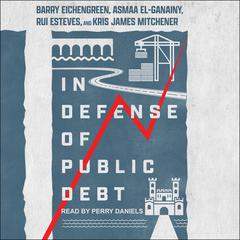 Play Audiobook Sample
Play Audiobook Sample
Hall of Mirrors: The Great Depression, the Great Recession, and the Uses-and Misuses-of History Audiobook
 Play Audiobook Sample
Play Audiobook Sample
Quick Stats About this Audiobook
Total Audiobook Chapters:
Longest Chapter Length:
Shortest Chapter Length:
Average Chapter Length:
Audiobooks by this Author:
Publisher Description
The two great financial crises of the past century are the Great Depression of the 1930s and the Great Recession, which began in 2008. Both occurred against the backdrop of sharp credit booms, dubious banking practices, and a fragile and unstable global financial system. Pain and suffering were widespread.
The question, given this, is why didn't policymakers do better? Hall of Mirrors, Barry Eichengreen's monumental twinned history of the two crises, provides the farthest-reaching answer to this question to date. Alternating back and forth between the two crises and between North America and Europe, Eichengreen shows how fear of another Depression following the collapse of Lehman Brothers shaped policy responses on both continents. Having done too little to support spending in the 1930s, governments also ramped up public spending this time around. The result has been a grindingly slow recovery in the United States and endless recession in Europe.
Hall of Mirrors is both a major work of economic history and an essential exploration of how we avoided making only some of the same mistakes twice. It shows not just how the "lessons" of Great Depression history continue to shape society's response to contemporary economic problems, but also how the experience of the Great Recession will change how we think about the Great Depression.
Download and start listening now!
Hall of Mirrors Listener Reviews
Be the first to write a review about this audiobook!
About Stephen R. Thorne
Stephen R. Thorne, winner of multiple AudioFile Earphones Awards for narration, is a professional actor and member of the resident acting company at Providence’s esteemed Trinity Repertory Company, where he has played Hamlet, Henry V, and Tom Joad.

























